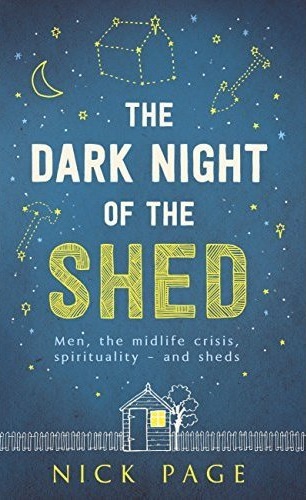The British author, Nick Page, nails it on the mid-life crisis:
From his book, The Dark Night of the Shed.
“All false gods have two things in common. First, they will all let you down, and second, the gods do not care.”
…..It is a disturbing thing, that dark night moment when you realize that the gods to whom you have given your life have let you down.
And the reason that it occurs in middle age more than at any other time is, I think, because in the first half of life we can still hold out the hope that they will deliver on their promises. There is still plenty of time for our worship to be rewarded.
But by middle age, as we’ve seen, our illusions have gone. We have seen the best that these gods can do, and found it wanting.
…..The wrong gods will always fail us.
For some men this leaders to anger and frustration. For others it is expressed in fear and anxiety. We lie awake at night worrying about money, about where the next job is coming from, about what will happen to use in the future. We feel helpless, isolated, trapped.”
He then offers this challenge:
“The mid-life crisis…. Is a call. That is what the word means, actually.
The word ‘crisis’ derives from the Greek word krinein, ‘to make a decision.’
When we undergo this dark night, we have a choice to make. We can keep our sadness , anger, feelings of frustration and failure and loss….. or we can try something completely different.”
Christian, here.
The answer, of course, is to actually make God our god.
To say “my god is in God.”
For me, God is more like one of those household idols that Rachel kept in the Old Testament. I’ve always read that passage and said, “Oh Rachel, really? Why can’t you get rid of your household gods?”
If someone read a passage about me, would they say the same?
“Oh Christian, really? God is right there, but you’ve just got to have your other things.”
We don’t call those things “idols,” we just call them “things I really like.”
If that’s all it is, if that’s all they are, if they’re just things we “really like,” why are we so shattered and dismal when we don’t get them, or when they don’t bring us the happiness we expect?
In Hosea, after warning us to stay away from idols, God promises, “I am like a tree that is always green. All your fruit comes from me.”
That’s his promise — that every good thing from life comes from God.
And as CH Spurgeon said: “God has given no pledge which he will not redeem, and encouraged no hope which he will not fulfill.”
That’s the kind of god who’s worth being our God.

